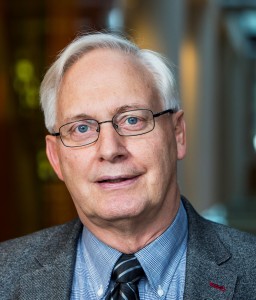For Dísa and myself the Covid-19 2020 was very different - as for most people. Academically it was OK, socially not as bad as we feared and our domestic travels were superb, being nurtured by the Icelandic nature and our friends. Many of us feel that the restrictions applied in Iceland were both moderate and sensible.
We managed a very pleasant golf trip to La Gomera in the Canaries, in February just before the pandemic put everything on hold. Two days before we were due to leave, one case had been detected in the whole of Spain, more precisely on the island of La Gomera! However, we did not experience any problems, but the week after we returned practically everything was frozen travel wise on the islands.
Our travels inland, here in Iceland, were numerous and all particularly enjoyable. One week in a summerhouse in Snæfellsnes with our daughters and granddaughters, continuing with a group of friends to the Northeast, hiking for a week in good weather and beautiful nature, and staying with friends in Akureyri on the way back. A weekend trip with friends to Siglufjörður in early August was followed by another trip also to the east, with another group of friends, also hiking for a week in beautiful weather. We were very lucky with both the weather and the summer-long lull in the Icelandic pandemic situation. There were a number of short trips, golfing – or not - to meet friends outside Reykjavík and two delightful day tours into the highlands, inspired by friends who had not been there recently.
For some reason I got myself involved in various administrative tasks, two at the University of Akureyri, one at the University of Iceland and continuing with one at the Ministry of Education. Throughout the year, quite a number of paper reviewing still comes my way. Also requests for presentations at various venues, which I enjoy, but those later in the year were through Teams and Zoom, which I find less satisfying. I find being on the editorial advisory board of Elm Magazine inspiring.
The pandemic didn’t stop NERA in Turku in March, which I found very good, with the additional benefit of meeting with Chris, Ulpukka and the four children. I hope to write a paper with her on the expansion of HE, this year. I was involved in four presentations and went to many good sessions.
I was involved in the writing of a number of papers. One with Guðrún Ragnarsdóttir on the impact of the university level through academic subjects, which was published in 2020 and two for a series on Nordic policy documents and two for a series on the development of primary education in light of Icelandic educational policy, all of which I hope will be published this year (2021). I wrote a short opinion paper in Icelandic noting the 70-year anniversary of a good colleague, Ingvar Sigurgeirsson. I am also continuing to be involved in the research project on the role of universities in a democratic society, led by the University of Akureyri and will, I hope, continue to be associated with the effort lead by J.C. Couture and colleagues on educational futures.

